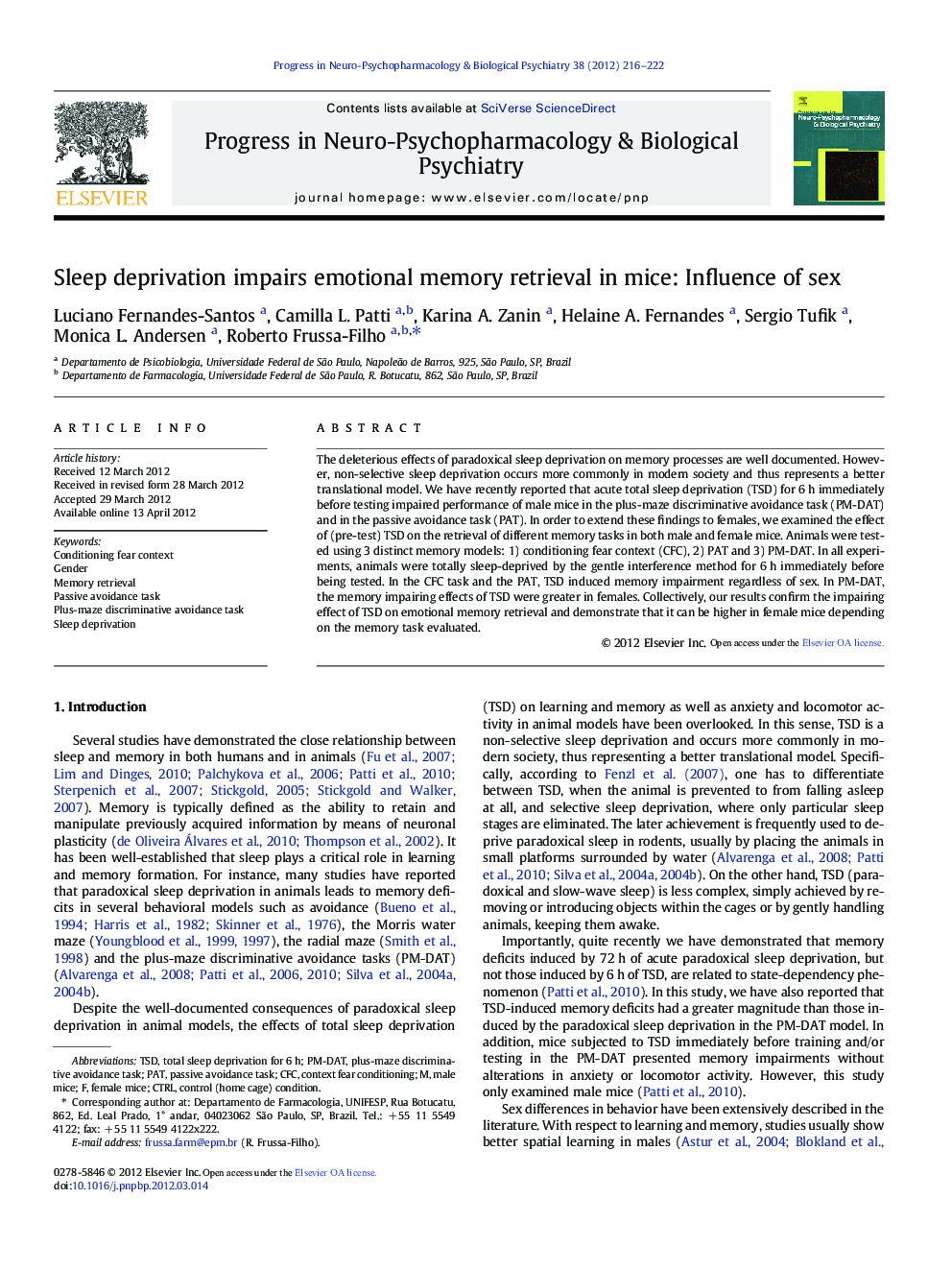| Article ID | Journal | Published Year | Pages | File Type |
|---|---|---|---|---|
| 5845049 | Progress in Neuro-Psychopharmacology and Biological Psychiatry | 2012 | 7 Pages |
The deleterious effects of paradoxical sleep deprivation on memory processes are well documented. However, non-selective sleep deprivation occurs more commonly in modern society and thus represents a better translational model. We have recently reported that acute total sleep deprivation (TSD) for 6Â h immediately before testing impaired performance of male mice in the plus-maze discriminative avoidance task (PM-DAT) and in the passive avoidance task (PAT). In order to extend these findings to females, we examined the effect of (pre-test) TSD on the retrieval of different memory tasks in both male and female mice. Animals were tested using 3 distinct memory models: 1) conditioning fear context (CFC), 2) PAT and 3) PM-DAT. In all experiments, animals were totally sleep-deprived by the gentle interference method for 6Â h immediately before being tested. In the CFC task and the PAT, TSD induced memory impairment regardless of sex. In PM-DAT, the memory impairing effects of TSD were greater in females. Collectively, our results confirm the impairing effect of TSD on emotional memory retrieval and demonstrate that it can be higher in female mice depending on the memory task evaluated.
⺠Total sleep deprivation induced memory retrieval deficit in male and female mice. ⺠Memory deficits were found employing 3 different emotional memory tasks in both sexes. ⺠Female mice are more sensitive to the cognitive effects of total sleep deprivation. ⺠These deficits are not related to anxiety or locomotor levels.
